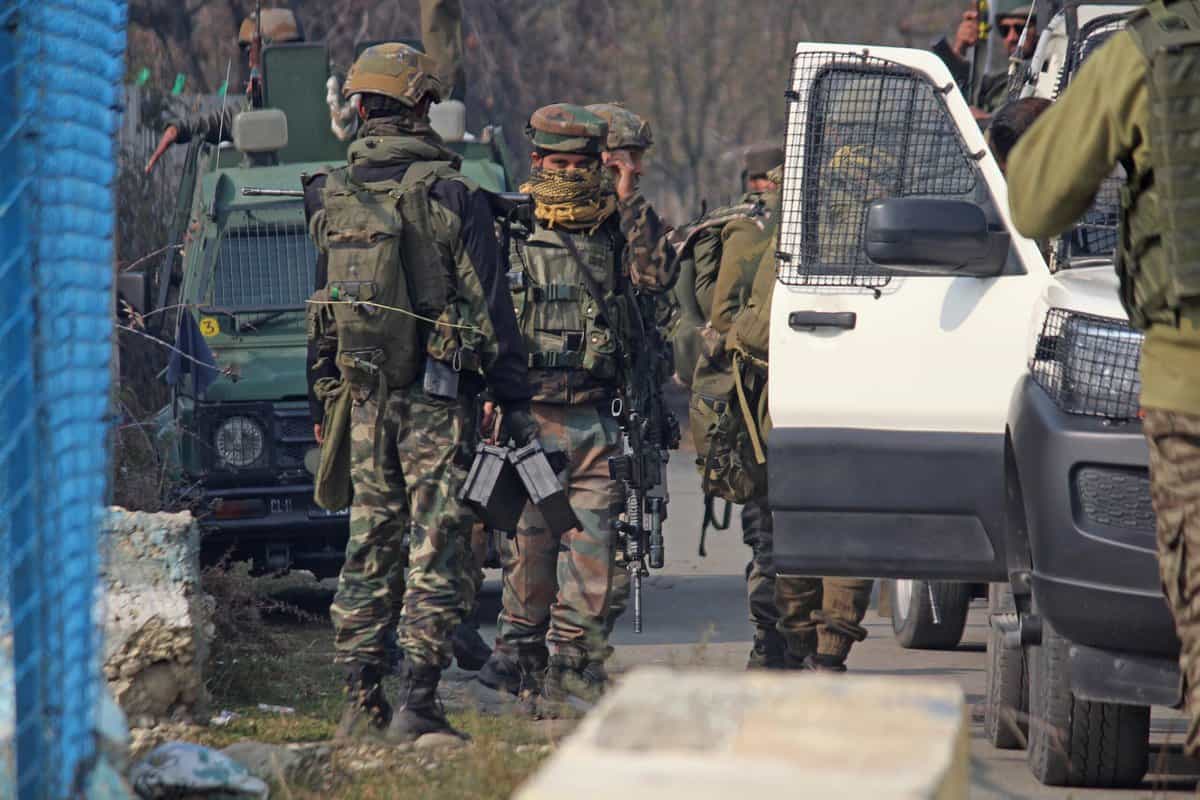
There was yet another terror attack on the security forces, this time on Indian Air Force vehicles in border district of Poonch on Saturday evening, in which one IAF personnel was killed and four others wounded. This attack came at a time when Anantnag-Rajouri constituency of which Poonch district is a part, is going to polls on May 25 – the polls were scheduled for May 7, but deferred to May 25, citing the adverse weather conditions. The attack is not a single incident, such incidents have taken place in the past, particularly in the last two years, creating an atmosphere of fear. How this will play out in the Lok Sabha polls remains to be seen. But it has demonstrated that terrorism is still breathing in crucial border belt where the targets are hard – army and other wings of security forces. It should prompt the government to have a holistic view of the security situation in the border belt in the overall context of security arrangements for the Lok Sabha polls and beyond.
It is not uncommon for terrorists to strike at the security forces, especially in densely forested and rocky areas where narrow roads and slippery conditions work to their advantage, But, this case, and four other such incidents in which 19 soldiers were killed last year, serve a chilling reminder that there is something more serious just than the terror attacks. That is there are gaps that the army, administration, and the people which have not been bridged. This situation is fertile for militants to mount attacks.
The May 4 attack took place at Bakrbal locality of Sanai village in the Surankote area of Poonch district, largely the same area where four soldiers were killed in an almost similar ambush in December last year. It is now almost a recurring story in the Pir Panjal areas of the south of Kashmir in the Rajouri-Poonch districts which border Pakistan-occupied Jammu and Kashmir. It is true that the militants often cross over from the other side of the Line of Control or LoC that divides Jammu and Kashmir between India and Pakistan, there, however, is a larger question that remains unaddressed: how these infiltrators get shelter in the villages, and how they manage to attack the security forces at the time and place of their choosing?
Before addressing these questions, there is a need to understand the genesis of the problem. There, indeed is a Pakistani hand in these attacks- the arms and ammunition and the precision with which the terrorists attack, killing and wounding soldiers, cannot happen without the active support from Pakistani army and the special groups that it has formed to train terrorists for such assaults on the Indian security forces. The terrain of the border works to their advantage. They are specially trained to operate in the mountains, and adverse weather conditions. There is a very strong vigil along the LoC. The army has been able to foil many infiltration bids from across. But it also is a fact that those who succeed in crossover find guides to help them reach their destination. This speaks of the local support, for money or familial affinity – there are many divided families on the two sides of the LoC. There is yet another reason, the gaps that are widening between the locals and security forces, including police which make the locals to help the men from across in setting up their bases. Each time an incident takes place, the usual response of the system is to arrest as many people, as they can, interrogate them, and sometimes the interrogation leaves few dead and others wounded. It happened in Surankote in December last year. Three villagers were tortured to death by the interrogating teams of the army. That led to a great deal of resentment among the locals. They were petrified by the acts of the security forces, and also angry that how could the villagers be picked up randomly, and then tortured to death.
Now to the question that why these infiltrators get food and shelter in the villages. The answer is simple- they come from the divided families on the two sides of the LoC, which makes it easier for them to get shelter. Alongside, there is a general nature of welcome because the locals don’t empathize with the system as much as they used to do in the past. The dynamics of their relationship with the army have changed. They admit that the army has the right to root out terrorism, but when non-combatants and involved are also suspected and interrogated, they feel bad. This bad faith causes problems, and irreparable fault lines. Second, the locals, guided by the same spirit, do help terrorists to find unbreakable rocky shelters from where they can survey the mountains and choose places from where they can mount attacks.

